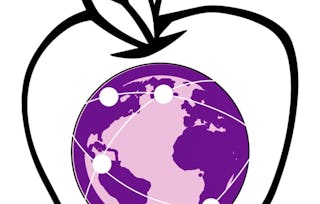In this course you’ll focus on how the Internet has enabled new careers and changed expectations in traditional work settings, creating a new vision for the workplace of the future. This will be done through a series of paired teaching sections, exploring a specific “Impact of Computing” in your typical day and the “Technologies and Computing Concepts” that enable that impact, all at a K12-appropriate level.

Teaching Impacts of Technology: Workplace of the Future

Teaching Impacts of Technology: Workplace of the Future
This course is part of Teaching Impacts of Technology in K-12 Education Specialization

Instructor: Beth Simon
2,974 already enrolled
Included with
Skills you'll gain
- Databases
- Technical Communication
- Cloud Computing
- Digital Transformation
- Hypertext Markup Language (HTML)
- Data Science
- Data Analysis
- Artificial Intelligence and Machine Learning (AI/ML)
- File Transfer Protocol (FTP)
- Digital pedagogy
- Cloud Storage
- SQL
- Amazon Web Services
- Skills section collapsed. Showing 8 of 13 skills.
Details to know

Add to your LinkedIn profile
9 assignments
See how employees at top companies are mastering in-demand skills

Build your subject-matter expertise
- Learn new concepts from industry experts
- Gain a foundational understanding of a subject or tool
- Develop job-relevant skills with hands-on projects
- Earn a shareable career certificate

There are 5 modules in this course
Welcome! Are you ready to explore the impacts of the technology on the workplace and new types careers available to us? To learn more about the computation and computing concepts that underlie those technologies? We'll be using a problem-based approach to explore interesting ways to teach concepts of networks and the internet, data and analysis, and even algorithms and data representation. Additionally, this course features a series called "Career Explorations" -- resources you can use to help students broaden their ideas of future career opportunities. Finally, we'll explore several lesson plans supporting online learning resources around data science and html programming (don't worry -- not prior programming experience is required!).
What's included
2 videos3 readings1 assignment1 discussion prompt
How has getting a job changed due to the Internet and ever growing amounts of information we choose to make available online? What new opportunities or flexibility are available because of the digital nature of much of our work? We'll explore this and some of fundamentals behind database storage and access that helps match us to possible jobs!
What's included
7 videos8 readings2 assignments3 app items2 discussion prompts
How have cheap computers and "always available" Internet connectivity changed how and when we can work? What about the cloud -- is it just for storage? Finally, we'll look at two impacts on careers -- working in a truly "global" company and managing the updates of software that we seem to get all the time!
What's included
6 videos11 readings2 assignments3 app items1 discussion prompt
How will the workplace of the future be different? Will workers be expected to constantly learn new things just to stay employable? How might that happen? Will machines be taking over our jobs? This is currently the subject of a LOT of discussion. Although exploring the technology behind machine learning and artificial intelligence is appropriate, we have already covered that in another course (Course 2 - Data). Instead here we'll look at the new "career" of data science and explore a tool you can use with students to give them a first introduction -- no programming needed!
What's included
4 videos3 readings2 assignments3 app items1 discussion prompt
Technology and the Internet is changing not only what kinds of jobs we can get, but how we can stay trained and train for new jobs our entire life. This week you will find a resource for exploring the impacts of computing on career or work -- that you think would be useful with YOUR students. Additionally we'll reflect on how cognitive load can cause challenges when teaching computing and explore and critique a code.org lesson on learning HTML.
What's included
4 videos6 readings2 assignments1 app item1 discussion prompt
Earn a career certificate
Add this credential to your LinkedIn profile, resume, or CV. Share it on social media and in your performance review.
Instructor

Offered by
Explore more from Education

University of California San Diego

University of California San Diego

University of California San Diego

University of California San Diego
Why people choose Coursera for their career

Felipe M.

Jennifer J.

Larry W.

Chaitanya A.

Open new doors with Coursera Plus
Unlimited access to 10,000+ world-class courses, hands-on projects, and job-ready certificate programs - all included in your subscription
Advance your career with an online degree
Earn a degree from world-class universities - 100% online
Join over 3,400 global companies that choose Coursera for Business
Upskill your employees to excel in the digital economy
Frequently asked questions
Yes! This course is designed as component of a Specialization that is 1 of a set of 4 Specializations (all will be offered on Coursera) that will support the requirements of the California Supplementary Authorization. Additionally, the Specialization may support credentialing or authorization in other states. However, most states require a transcript from an accredited institution of higher education. See the FAQ question on “Will I earn university credit” to find out how to get such a transcript.
Yes, you can earn UCSD credit for completing this course, but only by completing the full Teaching Impacts of Technology in K-12 Education Specialization. In addition, you will need to (1) Enroll in an additional UCSD Extension course before completing the capstone ($500) and (2) complete part of the capstone project via an online proctoring service. After this is done, your Specialization course grades will be accumulated and a transcript with your final grade (both letter grade or pass-only supported) will be issued from UCSD with 4 graduate-level units. These are eligible to count towards the California Supplementary Authorization.
There is no background knowledge, neither in education nor in Computer Science, required to take this course - just an interest in learning computational concepts about the technology that surrounds us and how to best teach those concepts to others.
Basic proficiency in the use of Googledocs will be needed to complete assignments within the course. Google help documentation will be provided, and with some extra attention, first time use of Googledocs should not be a barrier to successful completion of the course.
More questions
Financial aid available,

